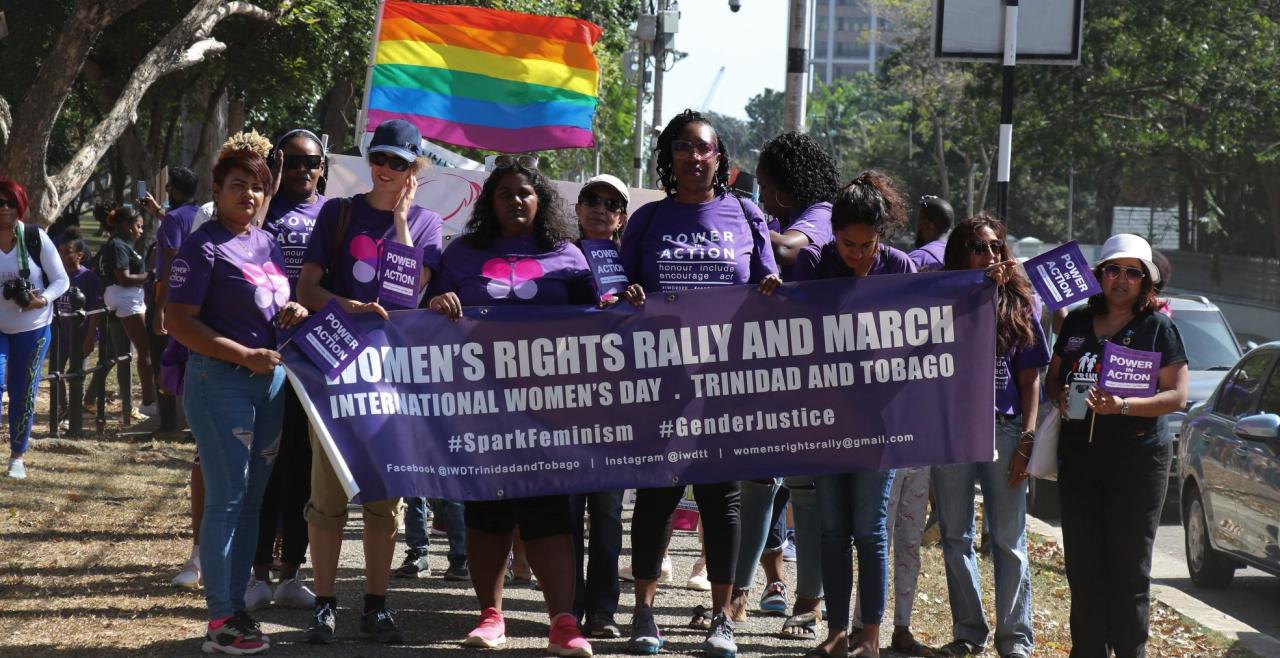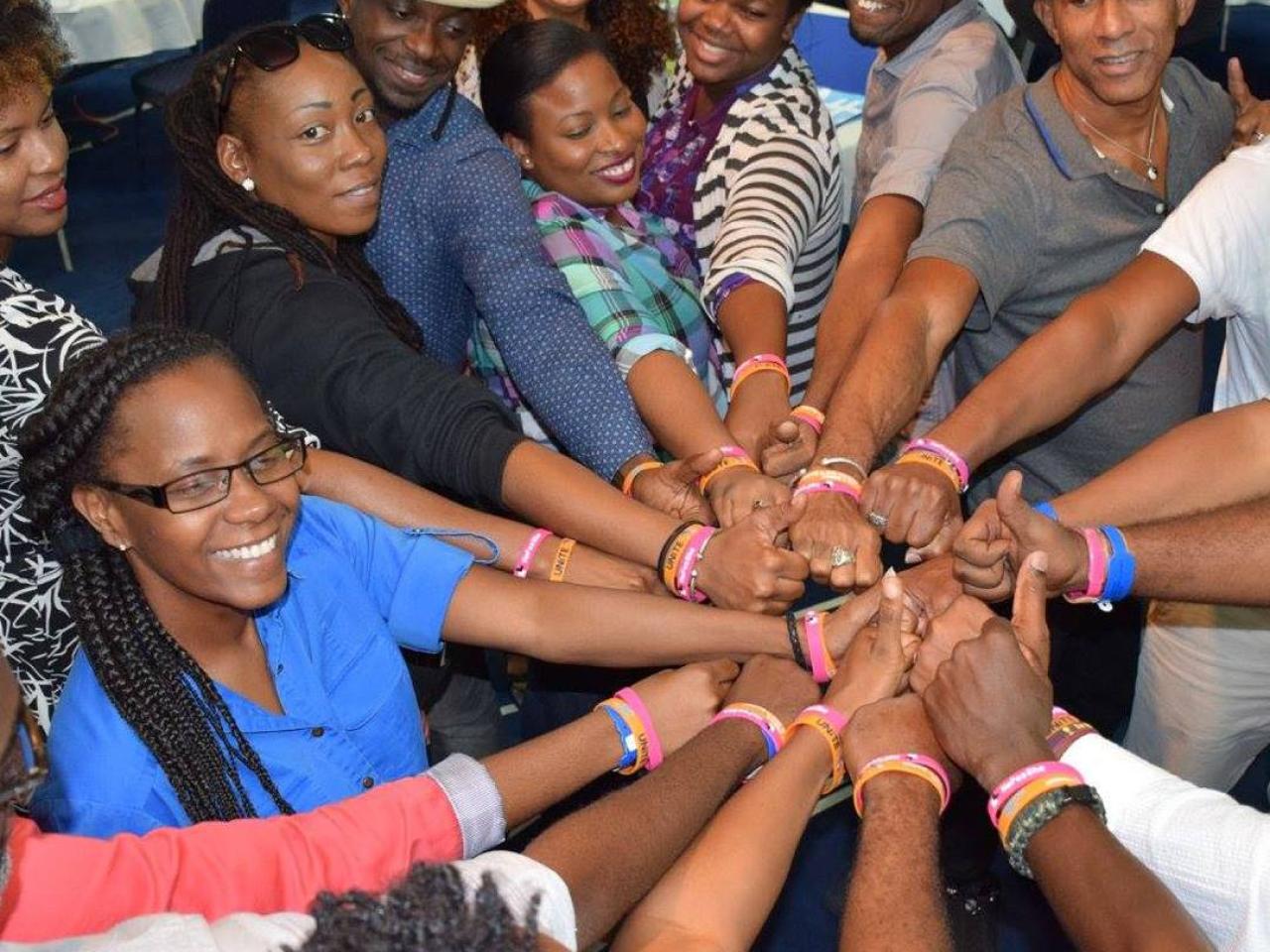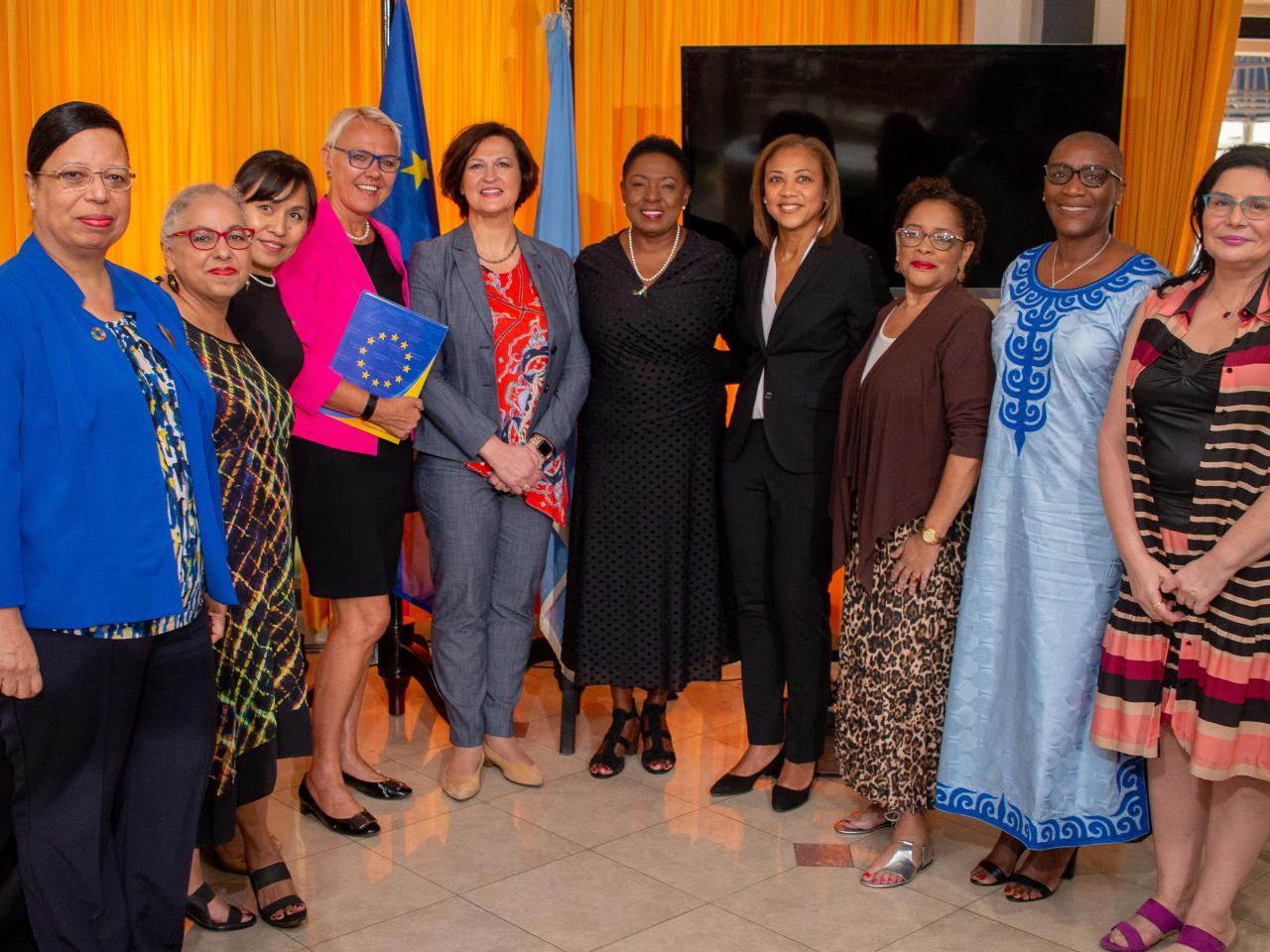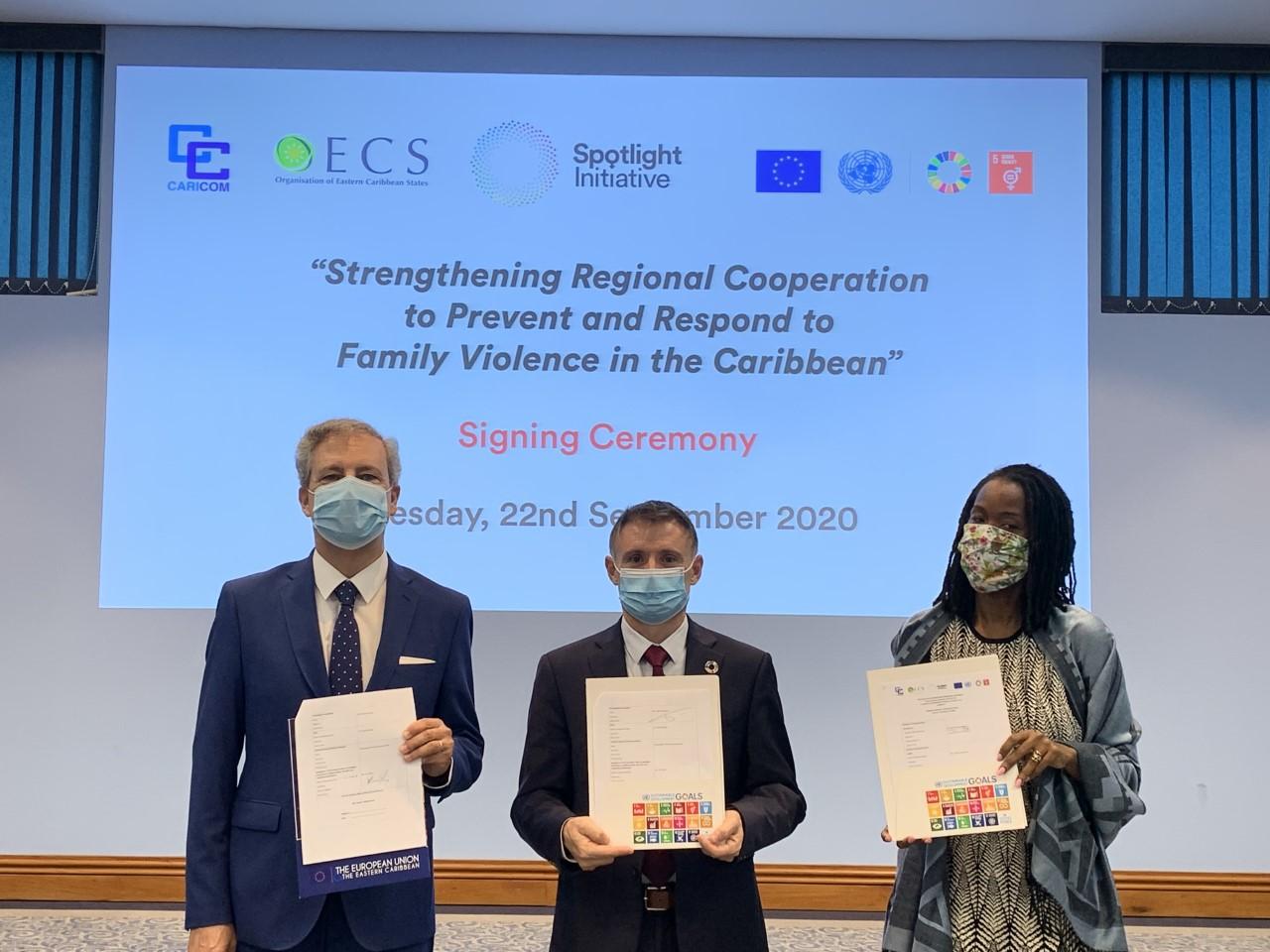Shattering myths about family violence in Trinidad and Tobago

PORT OF SPAIN, Trinidad and Tobago - Verbal and physical abuse, child abuse, sexual assault — in Trinidad and Tobago, the varied forms of gender-based violence (GBV) have traditionally been cloaked in shadow and shame. Now, the EU-UN Spotlight Initiative has teamed up with civil society groups to bring family violence into the cleansing light of day. By shining a light on these complex issues, the Initiative hopes to expose and eliminate gender-based violence.
Increased awareness offers hope, support and empowerment to survivors. With those goals and other key objectives in mind, the Spotlight Initiative was launched in May 2020 in the communities of Tunapuna, Mayaro and Tobago. The programme has been serving those communities through partner NGOs.
In Trinidad and Tobago, there are several stubborn myths about family violence. The Coalition Against Domestic Violence (CADV), one of Spotlight's partners in the fight against GBV, is keenly aware of the role education and awareness play in tackling the problem. CADV is a non-profit organization which works to eradicate physical, emotional, psychological, sexual, financial and spiritual violence in Trinidad and Tobago. Unfortunately, warped cultural norms preserve many of the myths that allow family violence to stay under the radar.
"In T&T, cultural attitudes are shaped by ideologies of masculinities and femininities which privileges males and promotes women's inequality," says CADV's Sabrina Mowlah-Baksh. "Role definitions are based on unequal power relations in which men are expected to assume and be the drivers of power and control. Violence is viewed and accepted as an effective method of exercising and maintaining that power and control."
It's imperative to address these flawed ideas of relationships between men and women. Beginning that process calls for an understanding of myths that sustain perceptions of women and girls as second-tier citizens. Below are five common myths about family violence that perpetuate misinformation.
1. Family violence is physical abuse
In reality, abuse in the home amounts to far more than just physical assault. Though less visible than bruisies, the cumulative mental health effects of enduring stress and tension on survivors and children is immense.
Also falling under the category of family violence is verbal abuse. Women and girls, either in the marital home or relationships, can be subjected to verbal and emotional abuse; put-downs, derogatory remarks and psychological torments that wither self-esteem and contribute to mental trauma over time.
2. Family violence is a one-off or single event
While one-off assaults aren't unusual, they're often preceded by a history of verbal abuse. Family violence presenting as physical abuse, sexual assault or caustic verbal sparring are, more often than not, signs of a behavioural pattern rather than single events.
In homes where GBV occurs, different forms of abuse often appear in tandem; sexual assault may accompany verbal abuse, beatings may follow the withholding of financial resources.
3. Victims and survivors provoke their abusers
In some communities, citizens are mistakenly convinced women and girls targeted by GBV are somehow responsible for the abuse. "The most enduring misconception of GBV in Trinidad and Tobago is that women provoke or deserve beatings based on some action they did or were supposed to do, in keeping with the perceived roles of women," says Ms. Mowlah-Baksh. Many women and girls who suffer from violence adopt behaviours meant to placate the perpetrators in the hope of staving off continued victimization. There is never any excuse for violence, and the only person responsible for violence is the perpetrator.
4. Family violence is triggered by stress or substance abuse
Work stresses or alcohol and/or drug abuse are sometimes present in GBV scenarios, however pinning the blame on these issues alone absolves perpetrators of responsibility by pointing to external factors. Abusers rarely turn their work or life frustrations on work colleagues or their managers.
5. Violence just a part of Trinidad and Tobago's culture
Family violence is often downplayed as domestic squabbles or seen as a normal feature of the household dynamic. Normalising GBV, however, further victimizes women and girls. They can be made to feel isolated and abandoned by society.
GBV can't be considered normal under any conditions. It's entirely unacceptable in any society. All citizens should be seen and treated equally, and bestowed with the same human rights.
The Spotlight Initiative is committed to working with civil society organizations to contribute to a better understanding of family violence. When GBV myths are exposed, women and girls find the courage and strength to seek help.
By Paolo Kernahan



